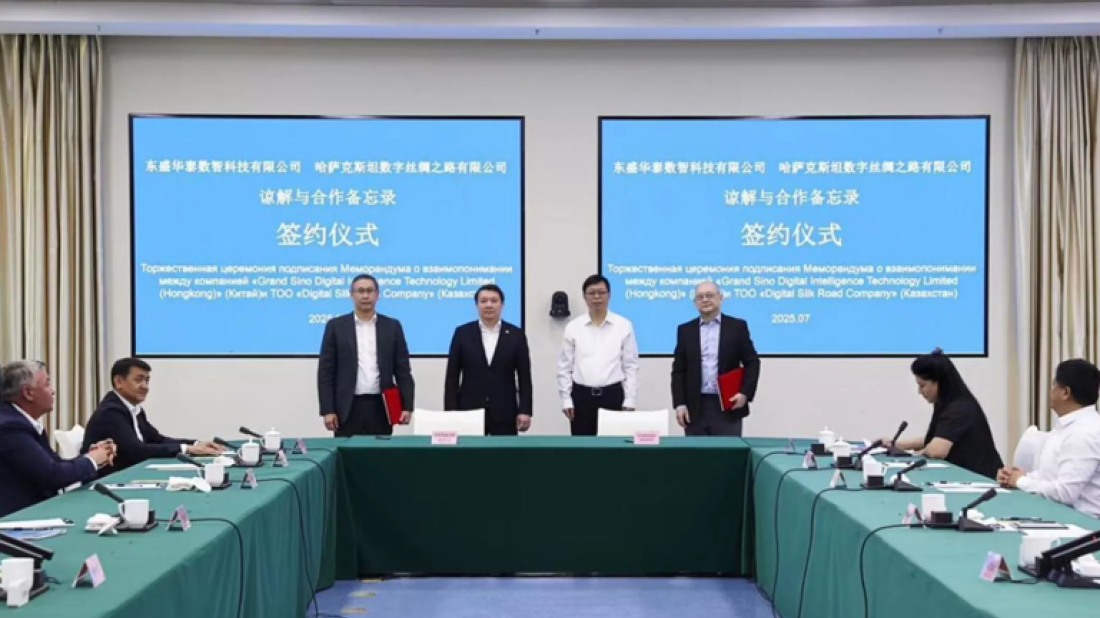Antonio José Seguro wins Portugal presidential runoff against far right
Portugal’s moderate Socialist Antonio José Seguro won the presidency on Sunday, defeating far-right challenger André Ventura in a runoff vote that...

Kazakhstan and China have launched a pilot project using autonomous freight trucks at the Bakhty-Pokitu crossing, aiming to speed up customs procedures, reduce transport costs, and modernise cross-border logistics under a new "Smart Customs" initiative.
Kazakhstan and China have launched a pilot initiative introducing autonomous freight trucks at a key land crossing, marking a significant step toward the digitalization of cross-border trade. The project, called "Smart Customs," is being rolled out at the Bakhty checkpoint on the Kazakh side and Pokitu on the Chinese side.
The initiative was announced by Kazakhstan’s Ministry of Finance and aims to improve the speed, efficiency, and transparency of customs procedures. Under the new system, goods will be transported across the border using driverless trucks equipped with automated navigation and monitoring technologies. The system will enable freight to move continuously, with minimal human involvement.
The pilot project was formally agreed upon during a working meeting between Zhandos Duisembiyev, Chairman of Kazakhstan’s State Revenue Committee, and Zhi Xiangwei, Secretary of the Communist Party Committee of Tacheng City in China’s Xinjiang Uygur Autonomous Region. The two sides signed a cooperation agreement to coordinate efforts and share expertise in customs digitalization and logistics innovation.
A key component of the initiative is the implementation of a unified electronic customs declaration system recognized by both Kazakhstan and China. This system will allow all required documentation and cargo processing to be handled digitally, significantly reducing the time needed for customs clearance.
According to officials, the Smart Customs project is expected to boost annual cargo volume at the Bakhty-Pokitu crossing to as much as 10 million tons. It will also reduce customs processing times, cut transportation costs, and enhance the security and transparency of logistics operations.
The project is designed not only to optimize the movement of goods but also to ease pressure on existing transport infrastructure. Authorities expect it to support the development of logistics hubs and stimulate trade in agricultural exports such as grain, oilseeds, meat, and processed products.
Beyond the logistics improvements, the initiative is viewed as a catalyst for broader economic development. It is expected to attract new investment to the border region, create jobs, and contribute to the modernization of border infrastructure. Kazakhstan’s Ministry of Finance emphasized that the project will strengthen Kazakhstan’s role as a strategic transit country in Central Asia and deepen trade integration with China.
Storm Leonardo hit Spain and Portugal on Tuesday, forcing more than 11,000 people from their homes, as a man in Portugal died after his car was swept away by floodwaters and a second body was found in Malaga.
Iran would retaliate by striking U.S. military bases across the Middle East if it comes under attack by American forces, Foreign Minister Abbas Araghchi said on Saturday (7 January), stressing that such action should not be seen as targeting the countries hosting those bases.
At least 31 people have been killed and scores wounded in a suicide bombing at a mosque in Pakistan’s capital, Islamabad, during Friday prayers, prompting widespread international condemnation.
U.S. and Ukrainian negotiators have discussed an ambitious goal of reaching a peace agreement between Russia and Ukraine by March, though the timeline is widely viewed as unrealistic due to deep disagreements over territory, according to multiple sources familiar with the talks.
A Japanese city near Mount Fuji has cancelled its annual cherry blossom festival, saying growing numbers of badly behaved tourists are disrupting daily life for residents.
Two adjoining buildings collapsed in Tripoli, northern Lebanon, on Sunday (4 February), killing at least six people and trapping an unspecified number beneath the rubble, according to security sources.
The Board of Peace created by U.S. President Donald Trump will hold its first leaders meeting on 19 February in Washington, a U.S. government official confirmed, marking the board's formal debut after weeks of global scrutiny.
Benjamin Netanyahu will meet Donald Trump in Washington on Wednesday, a date brought forward as indirect U.S.-Iran nuclear talks in Oman restart and Tehran presses its enrichment rights while ruling out missile negotiations.
Saudi Arabia and Syria have signed agreements worth about $5.3bn aimed at boosting cooperation across aviation, telecommunications and water infrastructure, marking one of the largest economic initiatives since Syria’s leadership change.
The U.S. has become a central outside power in the South Caucasus, shaping diplomacy, security and energy flows. Its relations with Azerbaijan and Armenia have evolved from similar beginnings into two distinct partnerships that now define Washington’s role in the region.
You can download the AnewZ application from Play Store and the App Store.

What is your opinion on this topic?
Leave the first comment